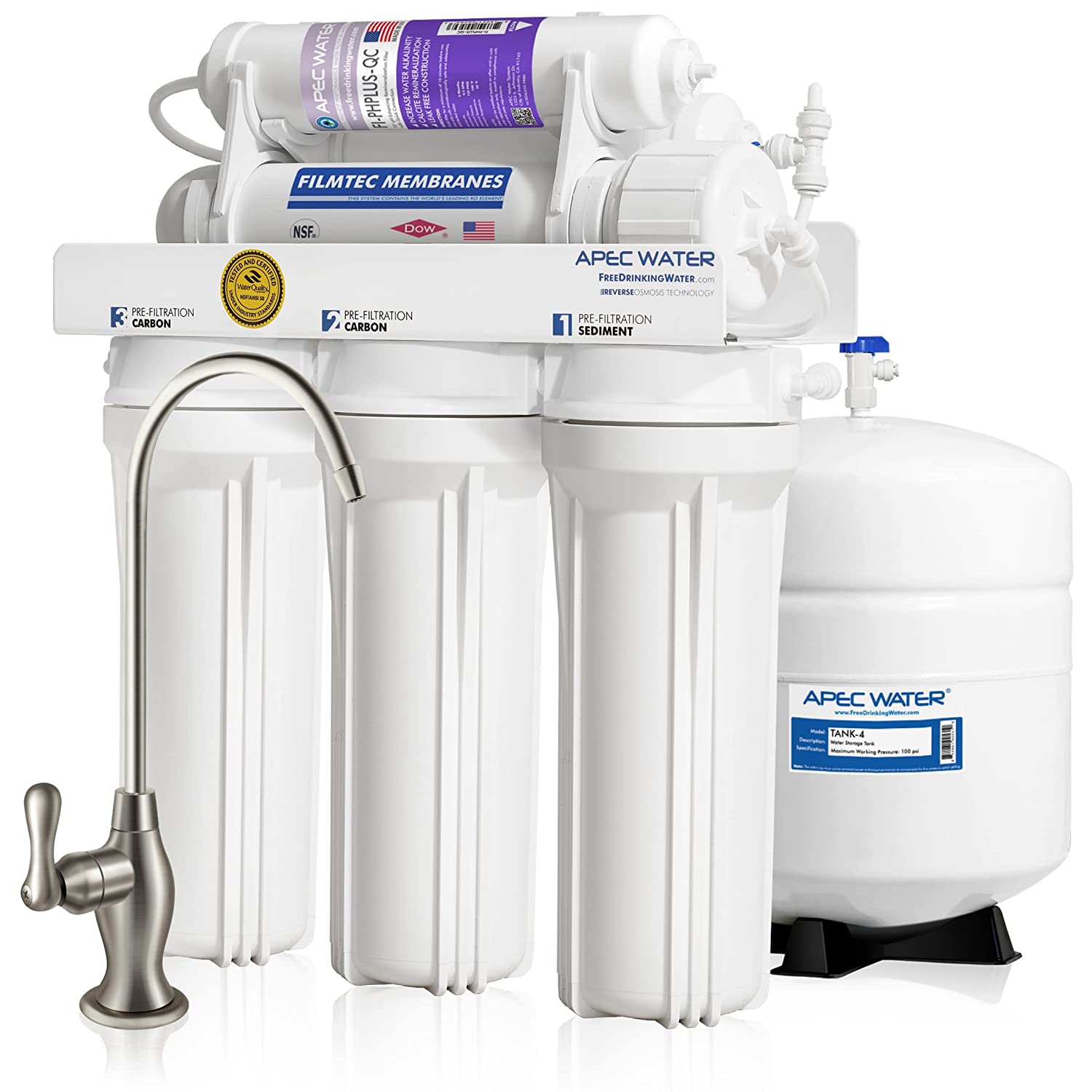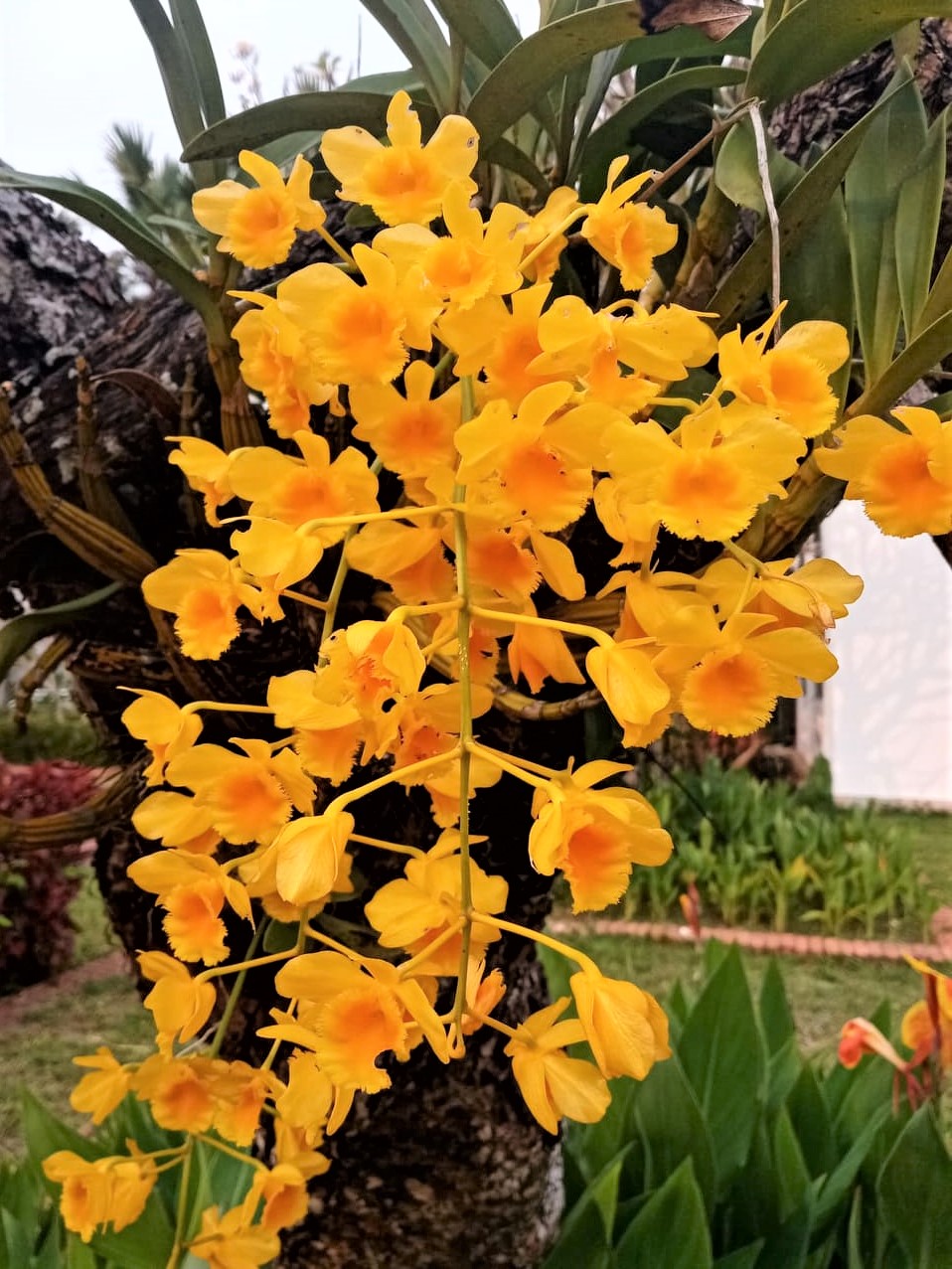- Home
- Orchid Watering Basics
- How much to water orchids
How Much To Water Orchids
If you're new to the world of orchid care, the question of how much to water orchids might leave you feeling perplexed. These beautiful plants, with the captivating allure of their magnificent flowers and unique growth habits, have a fascinating relationship with water. To unravel the mystery of watering orchids, let's delve into the way orchids grow in nature and explore how much to water orchids and the benefits of using saved rainwater, distilled water, or reverse osmosis water for their optimal nutrient uptake.

We are an Affiliate! We hope you find this information useful. Just so you know, we may collect a share of sales or other compensation from the links on this page. Thank you if you use our links, we really appreciate it.
Grow Thriving Orchids! Sign Up for Exclusive Care Tips & Tricks!
Orchids are Air Plants
Many orchids in cultivation today are epiphytes, often referred to as air plants. In their natural habitats, many orchids call the lush tropical regions home, where they have evolved ingenious strategies to secure moisture and nutrients from the environment. Unlike traditional potted plants, these botanical marvels do not rely on soil for their roots to thrive. Some of their roots act as anchors, gripping onto trunks and branches, while the rest reach out into the air where their sensitive outer skin collects moisture from the mist, rain, and dew that nature generously bestows upon them. They also receive nutrients from animal droppings, decaying organic matter and minerals leaching from the trees that they grow in. They are not parasitic, so they do not take anything from the trees that they grow in other than the minerals that leach from the bark when it rains.
To recreate these tropical conditions at home, maintaining proper humidity is essential—especially for epiphytic orchids like Vandas and Phalaenopsis. While misting helps, a dedicated humidifier provides the consistent moisture levels these air plants crave, mimicking their natural canopy environment.

How Orchids Absorb Water
But how do they quench their thirst without the luxury of soil? This is part of orchid's mysterious allure and here's where their sensitive outer skin comes into play. Orchids have evolved to possess a unique ability to collect moisture from various sources such as mist, rain, and dew. Their outer skin, called the velamen, acts as a sponge, absorbing and retaining moisture to sustain the plant during periods of drought.
Understanding this remarkable adaptation provides valuable insight into their watering requirements. Orchids have evolved to rely on intermittent water availability, making them highly sensitive to overwatering. Since they also like a lot of airflow, their sensitive roots are prone to rot if exposed to excessive moisture for prolonged periods. Therefore, striking the perfect balance between an ideal amount of water and avoiding waterlogged conditions in the growing medium is essential for their well-being. As for how much to water orchids, a general rule of thumb is to water your orchids once on a weekly basis. For more specific and detailed information visit our Ultimate Guide on How to Water Orchids.
The Best Type of Water
Water is water, right? Actually water can be classified as either hard or soft, and municipal water is usually treated with chemicals, so let's look at our choices. When it comes to watering orchids, utilizing saved rainwater, distilled water, or reverse osmosis water holds tremendous advantages. These water sources offer a multitude of benefits that contribute to the orchid's overall health and nutrient uptake.
Rainwater
Saved rainwater, as nature's gift, possesses inherent qualities that make it a fantastic choice for orchid hydration. It is soft, devoid of harsh chemicals, and rich in nitrogen, a vital nutrient for growth. Collecting rainwater and using it to quench your orchids' thirst not only replicates their natural habitat but also ensures a pure and nourishing source of water.
Distilled Water
Distilled water, obtained through the process of steam distillation, emerges as another excellent option for orchids. It undergoes rigorous purification, removing impurities, minerals, and contaminants. By using distilled water, you create an environment free from mineral buildup, safeguarding your orchids' delicate roots and facilitating optimum nutrient uptake when mixing it with fertilizer
Reverse Osmosis Water
Similarly, reverse osmosis water stands out as a preferred choice among passionate orchid enthusiasts. The process involves filtering water through a semi-permeable membrane, effectively eliminating impurities, minerals, and even microorganisms. This results in a pH-neutral water source that promotes healthy growth and enhances nutrient absorption. I personally have an Apec Reverse Osmosis system, and I can vouch for this company. With some basic tools, this system can be installed by an amateur in about two hours. I had to buy a new faucet for my sink in order to get the installation to work, so keep that in mind if you do decide to buy one of these. I love the clean pure water, and with one of these systems, you will not only be able to water your orchids with pure water, but also you drink the cleanest, purest most delicious water that also makes the best coffee, tea, and beverages.
By harnessing the power of saved rainwater, distilled water, or reverse osmosis water, you provide your orchids with the pure and clean hydration they crave. This not only ensures their well-being but also unlocks their true potential, allowing for optimal nutrient uptake unveiling their magnificent blooms and vibrant foliage

APEC Water Systems Top Tier Supreme Certified Alkaline Mineral pH+ High Flow 90 GPD 6-Stage Ultra Safe Reverse Osmosis Drinking Water Filter System (Ultimate RO-PH90)
The Problem with Hard Water
The importance of using saved rainwater, distilled water, or reverse osmosis water becomes even more apparent when considering the impact of hard water on orchids. Hard water contains high levels of dissolved minerals, such as calcium and magnesium, which can accumulate on the roots and in the potting medium over time. These minerals can obstruct nutrient uptake, leading to deficiencies and compromised growth in your cherished orchids.
How Much to Water Orchids
Now you can appreciate that how much to water orchids is a delicate art. Remember, these air plants have adapted to intermittent water availability, making overwatering a perilous pitfall and is actually the number one reason that new orchid growers experience failure. Harnessing the secrets of their natural growth habits and providing them with saved rainwater, distilled water, or reverse osmosis water allows you to create an environment that nourishes and supports thriving orchids. As a general rule of thumb, water your orchids once on a weekly basis and explore the navigation links above to learn more about precision watering and fertilizing. So, take a leap into the mesmerizing world of orchids, and let their thirst-quenching secrets guide you to horticultural bliss.





